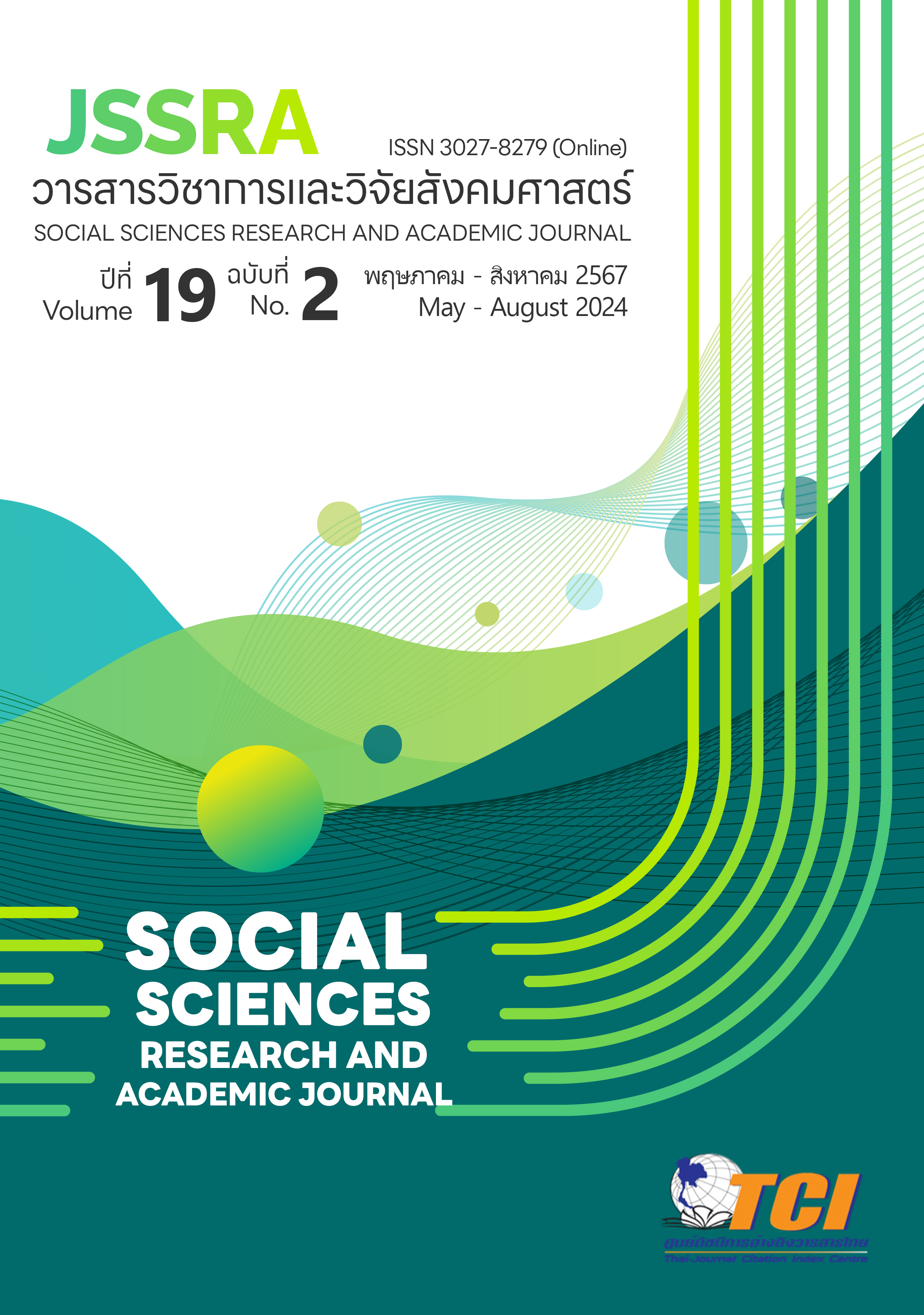The Development of Instructional Model Based on Phenomenon Based Learning to Student Teachers’ Learning Experiences Management Ability
Main Article Content
Abstract
The purposes of this research were to 1)study problems and needs about instructional model based on phenomenon based learning for enhancement education student’s experiences ability and 2) develop and find the quality of instructional model based on phenomenon based learning for enhancement education student’s experiences ability. The participants consisted of 7 instructor, experts and 47 students in the Early Childhood that obtained by using purposive sampling. Research instruments included of three parts: 1) Document analysis form 2) Instructor and expert opinion interview and 3) Student opinion questionnaire. The statistics used for data analysis were mean, standard deviation and content analysis.
The research finding were as follows: 1. Instructional model based on phenomenon based learning : activities must be flexible, interesting, and student-centered learning. Encourage students to learning by doing. Inquiry for information from phenomenon that is consistent with the subject which the phenomenon must be a true story that has already happened, consistent with the reality and the context of the learners, the content used in teaching and learning using phenomena must be dynamic. Teaching media must be modern and diverse. Learning resources must be consistent with the phenomenon being studied. There are methods for measuring and evaluating before, during and after teaching and learning. The measuring tools should be diverse, covered with objectives measured and measured from reality. 2. Instructional model based on phenomenon based learning for enhancement education student’s experiences ability (PAPOC Model) consisted of 5 components: 1) Principle 2) Objective 3) Instructional steps 4) Measurement and Evaluation and 5) Supporting factors. The overall quality inspection results were at the high level, (Mean = 4.24 and S.D. = 0.79).
Article Details
References
Bureau of Academic Affairs and Educational Standards. (2017). Early Childhood Curriculum B.E. 2560 (A.D. 2017). Bangkok: Aksornthai Printing LTD., Part. (In Thai).
Bureau of Academic Affairs and Educational Standards. (2019). An Overview of Phenomenon Based Learning. in Training Report of Science Education for Science and Mathematically Gifted Learner the Normal Lyceum of Helsinki, Faculty of Behavioral Sciences in University of Helsinki. (pp. 4-7). Bangkok: Bureau of Academic Affairs and Educational Standards. (In Thai).
Buosonte, R. (2019). Research and Development of Educational Innovations. Bangkok: Chulalongkorn University Press. (In Thai).
Butkatunyoo, O. (2018). Phenomenon Based Learning for Developing A Learner’s Holistic Views and Engaging in the Real World. Journal of Education Studies Chulalongkorn University, 46(2), 348-365. (In Thai).
Chanaman, L. (2020). The Development of Active Learning Instructional Model to Enhance the Ability in Early Childhood Learning Experiences Design of Early Childhood Education Students. Doctoral dissertation, Ed.D, Burapha University. (In Thai).
Daehler, K. and Folsom, J. (2016). Making Sense of SCIENCE: Phenomena-Based Learning. Retrieved May 4, 2022, from http://www.WestEd.org/mss.
Dick, W., Carey, L. and Carey, J. O. (2005). The Systematic Design of Instruction. (6th ed). Boston, Mass.: Pearson/Allyn and Bacon.
Jaithiang, A. ( 2010). Principles of Teaching. (5th ed.). Bangkok: Odean Store. (In Thai).
Joyce, B., Weil M. and Calhoun E. (2015). Models of Teaching. (9th ed). Boston: Pearson Education.
Kammanee, T. (2013). Instructional Model : Various Choices. (8th ed.). Bangkok: Chulalongkorn University Press. (In Thai).
Khakhai, T., Sala, K. and Prachpreecha, O. (2019). A Study of the Problems in Teaching Practicum of Diploma Students Studying in the Faculty of Education, Vongchavalitkul University. Sikkha Journal of Education, 6(2), 33-46. (In Thai).
Kongsanoh, S. (2015). Early Childhood Education, the Heart of Education. Retrieved February 1, 2023, from https://dl.parliament.go.th/backoffice/viewer2300/web/viewer.php. (In Thai).
Kruse, K. (2011). Introduction to Instructional Design and the ADDIE Model. Retrieved April 24, 2022, from http://www.e-learningguru.com/articles/ art2_1.htm
Mahavijit, P. (2019). Application of Phenomenon-Based Learning and Active Learning in Elementary Education Course to Enhance 21st Century Learning Skills. Journal of Education Khon Kaen University, 42(2), 73-90. (In Thai).
Naik, R. P. (2019). Phenomenon-Based Learning in Finland. Retrieved May 4, 2022. from https://jyx.jyu.fi/ bitstream/handle/123456789/64611/URN%3ANBN%3Afi%3Ajyu-201906143197.pdf?sequence=1
Nillapun, M. (2015). Research Methodology in Education. (9th ed.). Nakhon Pathom: Silpakorn University. (In Thai).
Nuangchalerm, P. (2017). Teaching Research. (3rd ed.). Bangkok: Chulalongkorn University Press. (In Thai).
Pornkul, C. (2012). Instructional Design: The Integration of Reading, Analytical Thinking, and Writing. Bangkok: Chulalongkorn University Press. (In Thai).
Richey, R. C., Klein, J. D. and Tracey, M. W. (2011). The Instructional Design Knowledge Base. New York: Taylor and Francis.
Silander, P. (2015). Phenomenon-Based Learning. Retrieved May 4, 2022, from https://www.phenomenaleducation.info/phenomenon-based-learning.html
Sinlarat, P. (2020). Principles and techniques of Higher Education Teaching. (5th ed.). Bangkok: Chulalongkorn University Press. (In Thai).
Sirithanyarat, C. and Lowriendee, W. (2020). Instructional System Design. (3rd ed.). Nakhon Pathom: Silpakorn University. (In Thai).
Symeonidis, V. and Schwarz, J. F. (2016). Phenomenon-Based Teaching and Learning Through the Pedagogical Lenses of Phenomenology: The Recent Curriculum Reform in Finland. Forum Oswiatowe, 28(2), 31-47.
Vanichwatanavorachai, S. (2023). Method of Teaching. (5th ed.). Nakhon Pathom: Silpakorn University. (In Thai).
Zhukov, T. (2015). Phenomenon-Based Learning: What is PBL?. Retrieved May 4, 2022, from https://www.noodle.com/articles/ phenomenon-based-learning-what-is-pbl.


